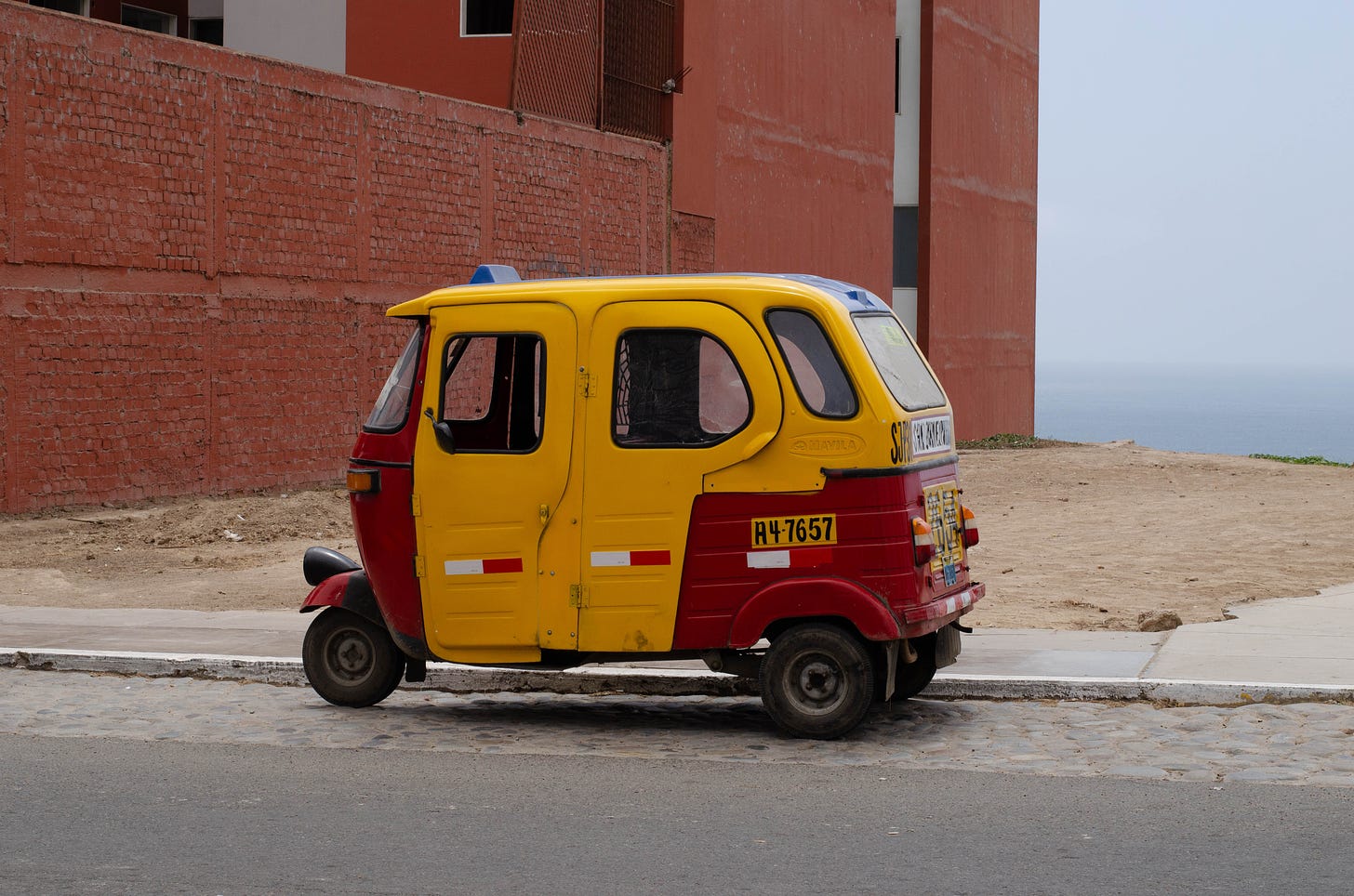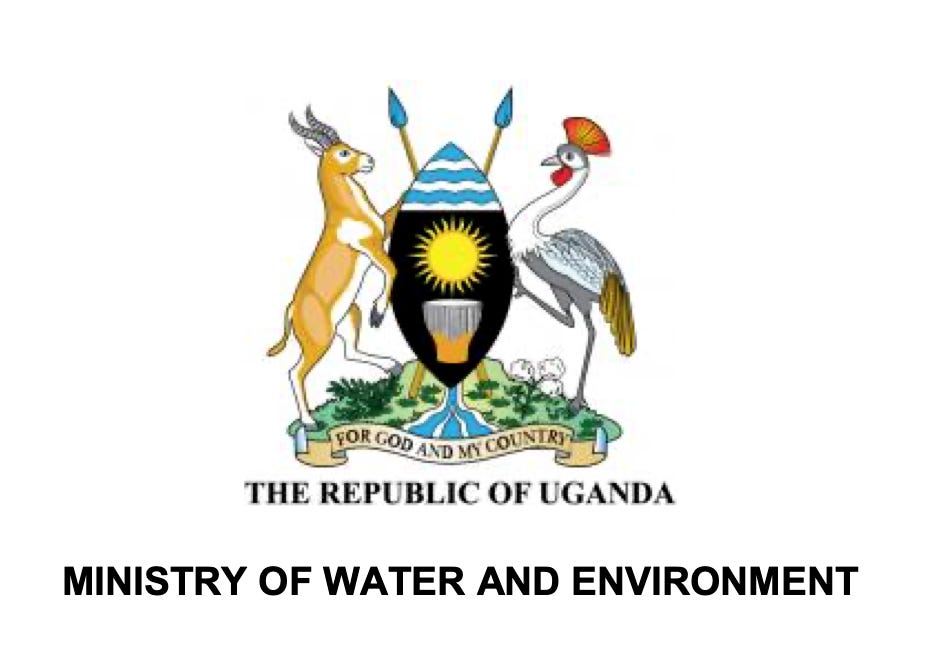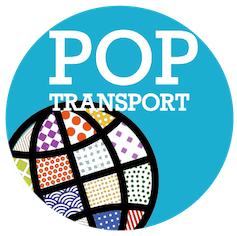We’re back!
Welcome to this forty-first issue of Pop Transport, the Global Network for Popular Transportation’s email newsletter. We’ve been away for a while but we hope to hit your inboxes once a month from now on.
We have lots of news below. In the meantime, if you’re new to this space, here’s a reminder of what we’re all about:
In research and policy, we call it “informal transportation,” “paratransit,” “intermediate public transit,” or “artisanal public transportation.”
Until recently, we used these words interchangeably. But, the more we understand, the more we realize that these terms are wholly inadequate. They define these systems by what they are not and miss out on what they are—homegrown, emergent, widespread, self-organizing, self-sustaining mobility.
We think the better term is POPULAR TRANSPORTATION—transportation created by people to serve people.
Make the connection
We've created a LinkedIn group to share information about projects, events, publications, and news related to popular transportation!
Whether you’re committed or just curious, join us on the platform. You’ll connect with researchers and practitioners working on popular transportation across the world.
Feel free to post and invite your friends. The more, the merrier!
Big news, big research
We can finally announce that we are part of the winning research consortium for the Volvo Research and Educational Foundation’s (VREF) International Research Program on Informal and Shared Mobility in Low- and Middle-Income Countries.
The Global Network for Popular Transport (GNPT), a project of the Shared-Use Mobility Center (SUMC), is a member of the winning research consortium for the Volvo Research and Educational Foundations’ (VREF) three-year, $1.7 million International Research Program in Informal and Shared Mobility in low- and middle-income countries.
The project, “An Equity, Ecosystems and Engaged Approach to Informal Transport and Shared Mobility,” offers a collaborative, grassroots approach to knowledge creation by establishing seven living labs in Asia, Latin America, and Africa. These labs seek insights into how operational, financial, regulatory, and governance changes enhance shared mobility services. The consortium aims to improve access, services, working conditions, emissions reductions, and public health.
We’re particularly proud of this achievement and excited for the work.
“This program presents a great opportunity to strengthen our network by learning from each other, studying the similarities and differences of popular transport in different cities and countries, exchanging experiences and generating valuable insights to contribute to the understanding, recognition, and integration of popular transport into policy and planning around the world,”
said Andrea San Gil León, executive director, GNPT.
We led the formation of the global consortium that will study the popular transportation ecosystems in Accra and Kumasi (Ghana), Bangkok (Thailand), Beijing (China), Bogotá (Colombia), Cape Town (South Africa), Mumbai (India), and San José (Costa Rica).
The group is a virtual who’s-who of the leading researchers and institutions in the space:
Center for Sustainable Urban Development, Columbia Climate School, Columbia University in the US, led by Jacqueline M. Klopp
Center for Transport Studies, University of Cape Town in South Africa, led by Roger Behrens, Mark Zuidgeest, and Obiora A. NNene
School of Engineering, Universidad de Los Andes in Colombia, led by Luis A. Guzman, Daniel Oviedo, and Olga Sarmiento
Transportation Institute, Chulalongkorn University in Thailand, led by Saksith Chalermpong, Lisa Kenney, Apiwat Ratanawaraha, and Ornicha Anuchitchanchai
Ernest Agyemang from the Dept. of Geography & Resource Development, University of Ghana
Ransford A. Acheampong from the Manchester Urban Institute, University of Manchester in the UK
Festival Godwin Boateng from the Consortium for Sustainable Urbanization (CSU), New York
And NGOs such as:
World Resources Institute (Global and China) with Su Song, Xuehong Ji, Yilin Ma, Thet Hein Tun, and Ben Welle
Shared-Use Mobility Center’s Global Network for Popular Transportation (US) with Benjamin de la Peña and Andrea San Gil León
Society for Promotion of Area Resource Centers (India) with Sheela Patel, Aneerudha Paul, Smruti Jukur, and Maria Lobo
Fundación Centro para la Sostenibilidad Urbana (Costa Rica) with Arturo Steinvorth Álvarez, Joséphine Dusapin, and Karla Gutiérrez Solano.
The consortium also counts on support from its associated partners: the Department of Transport of the Kumasi Metropolitan Assembly (Ghana), the City of Cape Town’s Urban Mobility Directorate, and Loop Woodstock, a private company in Cape Town that is providing digital services to minibus taxi operators and passengers.
Celebrate with us and our partners! Tell us what you think.
GNPT at Africa Climate Week
GNPT was in Nairobi last month for Africa Climate Week. Our Executive Director has a full report that we’ll share soon.
Meanwhile, here’s a snippet of what we did:
With VREF’s support, we hosted the Popular Transport Networking Reception. It was a relaxed event. Stakeholders from different segments of the popular transportation sector in attendance. We exchanged ideas and experiences on how to better integrate popular transportation into policy and planning.
GNPT our work and network, our trajectory so far, and our upcoming projects. Shoutout to the organizations that were at the reception:
Were you there? Leave a comment and tell us if you enjoyed the fellowship? (Or, if you didn’t.)
Popular transportation in SLoCAT’s 2023 TCC-GSR
The Partnership for Sustainable Low Carbon Transportation (SLoCAT) recently released the 2023 edition of their landmark Transportation, Climate & Sustainability Global Status Report (TCC-GSR 2023).
The report’s sobering headline?
Despite the discouraging findings, we at GNPT are encouraged that, for the first time, the TCC-GSR devotes a whole chapter to popular transportation (pdf link).
Authored by our very own Andrea San Gil Leon with Adriana Quesada Valverde, the 3.4.2. offers the following key findings:
Informal transport services are among the most common urban mobility systems globally. They are present in nearly every city and town in low- and middle-income countries and even in the underserved fringes of cities in high-income countries.
Informal transport refers to services that are offered with some measure of informality in their operations, not planned or operated by governments. These services tend to be demand-driven, unscheduled, and flexible, reflecting varying degrees of organisation among drivers and operators.
If integrated into policy and planning, informal transport could help to accelerate the transition towards more sustainable transport systems
worldwide.
A tendency to ignore or eliminate informal transport, despite its immense contributions, has generated large gaps in policy, knowledge, and data.
Download the TCC-GSR chapter on Informal (Popular) Transportation here.
(Full disclosure. Maruxa Cardama, SLoCAT’s Secretary General, serves on our Board of Advisors.)
Popular transport in climate plans
Uganda is now the first country to include popular transport in its Updated Nationally Determined Contributions (NDC).
For the uninitiated, NDCs are a key feature of the Paris Agreement on Climate Change. An NDC is essentially a country’s “climate action plan to cut emissions and adapt to climate impacts.”
Uganda’s Updated NDC (drafted with support from ITDP Africa) defines action specifically to:
"Work with the taxi industry to achieve service quality improvements and operator consolidation. Introduce 1,000 high-quality city buses in GKMA15 together with bus shelters, terminals, and depots."
The NDC also commits to "introduce ITS systems, automatic fare collection, and control centre for public transport in GKMA 2025" and the electrification of "boda-boda or buses."
Two-wheelers lead Africa’s electrification
CNN reports on battery swapping and the rapid electrification of two-wheelers in Africa - with boda bodas and okadas (and the many other names for motorcycle taxis across the continent) taking the lead.
“According to the FIA Foundation, there were 27 million motorbikes registered in sub-Saharan Africa in 2022, rising from just 5 million in 2010, with around 80% of them used in the motorcycle taxi industry. The demand for two-wheelers is expected to grow even further, with a report from management consulting firm McKinsey estimating that electric and petrol motorbikes will make up over 45% of sub-Saharan Africa’s overall vehicle fleet by 2040.”
CNN also shared that FIA
”…found that while the purchase price of electric motorcycles is currently greater than that of petrol-powered motorcycles, the operating costs are cheaper. It says that in many African countries, one liter of petrol will power a bike for about the same distance as one kilowatt-hour of electricity but will cost five to 10 times more.”
Boose on mototaxis in Peru

Global Network member Will Boose shared his most recent paper (in Spanish) that details the history of mototaxis in Perú and critiques urban "informality" and "modernity" paradigms. Los mototaxis del Perú y las contradicciones de la «(in)formalidad» y «modernidad» is available (open access) on Histórica.
Will (who was recently awarded a Fulbright) says he would be happy to provide an unofficial English-language PDF of the manuscript. Connect with him via our LinkedIn group.
(You can also comment below or drop us an email, and we’ll forward it to Will.)
That’s it for now!
We’ll catch you next month with more from Africa Climate Week in Nairobi and the UITP Informal Transport Working Group meeting in Cape Town.
Pop Transport is the newsletter of the Global Network for Popular Transportation, a global network of researchers, consultants, advocates, companies, agencies, and institutions committed to changing how the world sees popular transportation.
The Global Network for Popular Transportation is a project of the Shared-Use Mobility Center, initiated by Agile City Partners.
The Global Network for Popular Transportation works to ensure that:
Cities, countries, international development agencies, and banks recognize popular transportation as valid, essential, and important services.
All popular transportation modes are integrated into urban, transport, social, economic, and climate policy and planning efforts.
The key sectors in popular transportation are recognized and participate as equal partners in co-creating accessible, equitable, and sustainable cities. These sectors include workers, entrepreneurs, micro-, small-, and medium enterprises, and small-scale investors.
The world takes an asset-based framework to understanding popular transportation, moving away from simplistic and ineffective approaches focused solely on transportation efficiency to an approach that prioritizes valuing the environment, advancing equity, and empowering people and communities








Congratulations, it is a great achievement and well deserved. I am sure that they will be able to make a great contribution with the VREF grant. Greetings from the Trufi association.